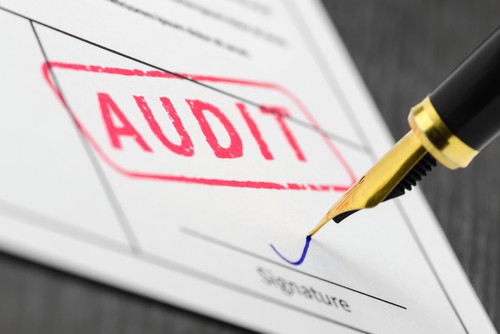
Questions To Ask Potential Accounting Service Providers
March 8, 2023
Can You Trust AI-Based Accounting Services?
May 31, 2023How To Prepare For A Company Audit: A Step-by-Step Guide

How To Prepare For A Company Audit: A Step-by-Step Guide. Are you anxious about an upcoming audit of your company? You are not alone. Many business owners and managers find being audited daunting, but it doesn’t have to be that way. With proper preparation, you can breeze through a company audit without any worries.
This blog post will provide a step-by-step guide to preparing for a company audit. Read on to learn more!
How To Prepare For A Company Audit: A Step-by-Step Guide

Understand the Purpose of Company Audit
The first step in preparing for an audit is understanding why it’s being conducted in the first place. Is it because your financial statements don’t add up? Are there suspicions of fraud or mismanagement? Or is it simply routine compliance auditing?
Before diving into the steps of preparing for an audit, it’s essential to understand what an audit entails. An audit examines your company’s financial records and operations by external professionals independent of your organization. The purpose of audits is twofold;
- Firstly, they help identify any areas where there may be errors or discrepancies in accounting practices so these issues can be addressed before they become more significant problems.
- Secondly, audits are used as checks against fraudulent activities, ensuring compliance with appropriate laws and regulations.
Understanding why your company is being audited will help you better prepare yourself and ensure all relevant documents are available when auditors request.
Organize Your Documents
One thing every auditor wants from their client during an inspection process is complete documentation records such as tax returns, bank statements, payroll records, etc., so they can review them thoroughly before making decisions based on what information they’ve gathered.
Therefore It’s essential to ensure all necessary documents related to accounting practices, such as cash receipts, journal entries, Bank reconciliations, accounts payable, invoices employee expenses should, be sorted out appropriately ahead of time so that everything runs smoothly during the actual process.
Create An Audit Team

At this stage, especially if yours isn’t a one-person show, it’s essential to assemble relevant members within each department who would work alongside designated personnel responsible for working with external auditors.
Having reliable team members around would ease off some pressure that comes with audits, enabling everyone involved to be more confident and prepared throughout the course.
Conduct Internal Audits Before The Official One
Before the official commencement date scheduled by the external auditing firm, conduct self-audits internally to identify areas that need more attention, correction, or complete overhaul if necessary.This would provide ample opportunity for corrections before the auditing process begins, saving valuable time and resources in the long run.
Prepare a Checklist
Preparing a checklist of all documents needed by external auditors is essential to ensure no record is left out during the preparation stage. It also helps you track what has been provided and what hasn’t.
Gather Information

Gather information about the audit scope, timeline, and requirements from your auditor so that you know exactly what they will be looking for. This includes understanding any specific accounting policies or procedures they want to review.
As part of this step, ensure you have access to all relevant financial data such as bank statements, invoices paid/received, etc., payroll reports employee expense details ahead of time scheduled date so everything would be available when requested by auditors.
Familiarize Yourself With Audit Procedures
Getting familiar with audit procedures, such as sampling techniques and audit testing methods used by external auditing firms going through your company’s books will be good.
An excellent way to do this is by reading up on standards outlined in GAAP (Generally Accepted Accounting Principles). By doing this, one could easily anticipate questions likely put across during the process.
Communicate Effectively With Auditors
Communication plays a huge role throughout the auditing process, so fostering open communication between both parties aids smoother-running overall exercise. Please ensure effective communication with external auditors regarding scheduling meeting times and providing timely feedback whenever needed. Most importantly, being transparent throughout the course makes things easier for everyone involved.
Understanding Company Audits
Auditors will typically review invoices, account ledgers, bank statements, etc., but will also assess internal controls over financial reporting, such as segregation of duties within staff roles, etc.; both aspects must work together effectively to achieve accurate reported results required under GAAP (generally accepted accounting principles).
Preparing For Your Audit
Preparation begins long before auditors arrive on site. It requires careful planning so everyone knows their roles and responsibilities from this period until the completion date when the final report is issued back into management’s hands.
Here are some critical steps for Company Audit:

1) Assemble the team
Employees responsible for gathering data must clearly understand what type of documentation is needed along with timeline requirements and deadline dates provided with which specific individual assigned role, keeping communication flowing throughout the preparation phase.
2) Review Past Financial Statements & Reports
Reviewing past reports allows highlighting areas needing improvement preparation process begins identifying potential issues. Early detection reduces stress associated with last-minute changes.
3) Review Accounting Policies and Procedures
Reviewing company policies and procedures will help ensure that all staff is aware of compliance requirements and can prepare documentation in line with the auditor’s expectations.
4) Organize documentation
The organization is vital when it comes to any audit process. Ensure all relevant financial documents are carefully organized, easily accessible, and ready for review.
5) Conduct Internal Reviews
Conducting internal reviews before the auditor’s arrival helps identify issues early on, such as data inconsistencies or gaps in documentation, allowing time for corrective action to be taken before external parties write up the actual report.
6) Prepare Responses To Likely Questions
I’d like for you to prepare responses for questions you anticipate from auditors will save valuable time during the audit itself since many common queries may already be answered within previous preparation steps completed leading up to the date the onsite visit is scheduled.
7). Confirm Dates & Times With Auditor Team
Once your team has prepared everything required, it’s essential to let you know scheduling details, dates/times, etc., complete this evaluation successfully without delaying results beyond projected timelines agreed upon beforehand between both parties involved.
How To Prepare For A Company Audit: A Step-by-Step Guide – Conclusion

In conclusion, I am preparing effectively before an official company audit goes beyond just gathering documentation materials.
Instead, it involves creating an organized structure with reliable team members around conducting self-audits beforehand and establishing clear communication channels, amongst other measures outlined above. These steps would go a long way in ensuring a seamless process and enable you to breeze through any company audit.



